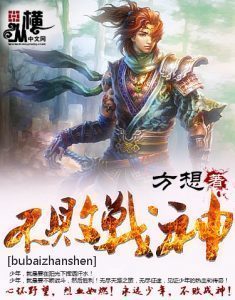Novel Name : The World Online
The World Online 1235 TWO Chapter 1235-Ice melts, spring sowing begins
Chapter 1235 – Ice Melts, Spring Sowing Begins
Using the big victory in East Africa, the storm that happened in Great Xia finally stopped.
Although the actions of the Imperial Court were really hidden and silent, the smart people could still see what was going on. At the very least, they did not dare to go against the court of law on the surface. Hence, this storm went from the light to the dark.
Ouyang Shuo was really clear that such a situation could not be changed in a short time.
Luckily, Great Xia was still expanding and developing quickly, and all problems could be solved through development. None of this would be able to shake the foundations of the Emperor dynasty.
All that remained would be left to the rest of time.
...
After taking down South Sudan and Kenya, Ouyang Shuo was not satisfied and ordered the Africa warzone to rest up before preparing for the next war.
The next targets would be Uganda and Tanzania.
Uganda was located in the east of Africa, connected to both South Sudan and Kenya, with an overall size of 240.15 thousand square kilometers. It was mostly located at the high plains of East Africa and had many lakes. On average, it was 1000 to 1200 meters above sea level, being known as the highland water home.
Although it was located on the equator line, Uganda was located above sea level, with many rivers flowing and lakes all over. Hence, it had sufficient water and many trees and plants growing. Its four seasons were all like spring.
Victoria Lake was the second biggest lake in the world and the biggest freshwater lake in Africa and 42.8% of it was within Uganda. The lake region was famous for its production of cotton and coffee, which was the main export when the English colonized them.
Uganda had four million players and had 200 thousand imperial city guards.
Next would be Tanzania on the south.
Tanzania was one of the places where the ancient people originated from and was located on the east of Africa, south of the equator. It mainly focused on farming and in BC years it mainly traded with Arab, Persia, and India.
Its territory had a lot of raw minerals, mainly gold, iron, nickel, coal, diamonds, and phosphate. Its overall amount was fifth in Africa.
Tanzania had five million players and 250 thousand imperial city troops.
Hence, even if the two of them worked together, they would find it hard to defend against the attacks of Great Xia. Furthermore, after taking down both South Sudan and Kenya, Great Xia had a relatively stable backline.
In Great Xia's conquest of East Africa, its greatest opponent was not locally, rather, it was Europe and America.
Luckily, the dynasties of America and Europe were busy occupying their own territories and did not have time to bother about Great Xia. Even the Egypt and Bantu dynasties were busy expanding by themselves.
Ouyang Shuo predicted that the 7th year would be when the various powers split up Africa. Next year would be when the dust settled, and the cruelest competitions and wars would begin.
Hence, why would Ouyang Shuo be conservative? He had to proceed forward courageously and use this time to expand in East Africa to build a stable base.
If not, he would have totally no chance in the 8th year of Gaia.
...
Gaia 7th year, 3rd month, apart from the Africa warzone, only the South America continent was affected by war. Just as Ouyang Shuo had expected, Indian Empire focused their firepower on Argentina, and Casillas finally acted.
Based on the intel from the Black Snake Guards, 3rd month, 15th day, Spain Dynasty added 150 thousand troops to Argentina. Along with the 200 thousand troops that were originally there, Casillas was determined to defend that area.
For this, the Spain Dynasty had to temporarily give up on competing for land on Africa.
Casillas was not a fool and knew that Africa was eyed by all the powers. Joining in was also mostly European and American powers that belonged to the same camp as them, so he faced a lot of restrictions.
On the contrary, South America was a huge piece of juicy meat.
More importantly, South America was where Spanish culture was deeply rooted.
If he could work together with the Dawson Dynasty and swallow up the entire South America, the Spain Dynasty would reach a whole new level and exceed the Gaule Dynasty and other European opponents.
Moreover, along with the Spain Dynasty adding troops to Argentina, the South America situation became really complicated.
...
As the 3rd month arrived, the cold winter slowly faded and spring slowly spread across the wilderness.
Outside of the imperial capital, on the shores of Friendship River, willows fluttered and new green sprouts grew and drifted in the wind. In the wilderness, green grasses were like diseases spreading, and countless small flowers bloomed and attracted many colorful butterflies.
Spring had returned to the land.
During the cold winter, the Mongol grasslands in the north to the Jingchu land of the south, Tibet in the west, and Great Zhou in the east had all gone through a cruel life and death test.
Hundreds of millions of civilians were fighting against hunger and the cold.
Along with the winter passing, the ice melted. Those people who either froze to death or died from hunger, their corpses all lied around, making one feel numb and despaired.
To the civilians of the wilderness, this was the toughest winter in their memories. Many families collapsed, wives left their husbands, and some people turned to cannibalism.
A calamity caused the world to change.
Hence, along with the snow and ice melting, in the spring of the 7th year, what the emperors and the people cared about was not war but farming.
People were praying that the weather could be good this year to let them ride through the hardship.
Truthfully, before the New Year, this battle against hunger had already started. In China, including Great Xia, the local areas had all started reclaiming land for farming.
This was done to ensure a good harvest.
What made one helpless was that along with winter coming, the land was frozen like rock and could not be flipped. Hence, once the land unfroze, the civilians rushed out to make use of the month of time before the spring planting season to quickly reclaim land.
In Great Zhou and the like, the Imperial Court even used their armies to quicken the speed.
They were fighting a race against time.
After the matter, people calculated that from just this time alone, China had a total of 100 million more mu of farmland.
Due to this, Great Xia postponed the battle of unification for three reasons.
First, although Great Xia had purchased a huge batch of grain, as the territory expanded and the population increased, along with the usage of grain in war, the grain storage amounts were running low and were close to its extreme.
Ensuring the grain production in the 7th year of Gaia was equally important to Great Xia.
If they chose to fight now, apart from sending proper troops, they would use up a lot of laborers to help transport grain, which would delay the reclamation of land as well as the upcoming spring sowing season.
The losses would be more than what they would gain from it.
Due to that, Great Xia would at least wait until the spring sowing season ended before starting the war.
Secondly, if Great Xia started the war now, even if they could win, they would only get land that had delayed their spring sowing and had little grain.
In the end, they would just be heavy burdens.
Even with Great Xia's ability to take so many burdens at once, with they themselves being affected, they would definitely lack grain if they did so.
If that happened, the Imperial Court might not be able to control the situation.
Hence, choosing to start a war now would be a lose-lose situation for everyone.
Thirdly, the war in Africa was brewing, and things might change there at any moment.
To ensure that no surprises happen there, they needed to make sure that they could support the Africa warzone at any moment. To fight in China at the same time would be a dumb decision.
Due to the above few points, Great Xia had to delay the war.
Although it would give the four country alliance some breathing room, it was the safest decision.
...
Mongol Empire, Karakorum.
Just as the mid plains were busy reclaiming land and farming, the Mongol Empire finally started new movements.
Using the big victory in East Africa, the storm that happened in Great Xia finally stopped.
Although the actions of the Imperial Court were really hidden and silent, the smart people could still see what was going on. At the very least, they did not dare to go against the court of law on the surface. Hence, this storm went from the light to the dark.
Ouyang Shuo was really clear that such a situation could not be changed in a short time.
Luckily, Great Xia was still expanding and developing quickly, and all problems could be solved through development. None of this would be able to shake the foundations of the Emperor dynasty.
All that remained would be left to the rest of time.
...
After taking down South Sudan and Kenya, Ouyang Shuo was not satisfied and ordered the Africa warzone to rest up before preparing for the next war.
The next targets would be Uganda and Tanzania.
Uganda was located in the east of Africa, connected to both South Sudan and Kenya, with an overall size of 240.15 thousand square kilometers. It was mostly located at the high plains of East Africa and had many lakes. On average, it was 1000 to 1200 meters above sea level, being known as the highland water home.
Although it was located on the equator line, Uganda was located above sea level, with many rivers flowing and lakes all over. Hence, it had sufficient water and many trees and plants growing. Its four seasons were all like spring.
Victoria Lake was the second biggest lake in the world and the biggest freshwater lake in Africa and 42.8% of it was within Uganda. The lake region was famous for its production of cotton and coffee, which was the main export when the English colonized them.
Uganda had four million players and had 200 thousand imperial city guards.
Next would be Tanzania on the south.
Tanzania was one of the places where the ancient people originated from and was located on the east of Africa, south of the equator. It mainly focused on farming and in BC years it mainly traded with Arab, Persia, and India.
Its territory had a lot of raw minerals, mainly gold, iron, nickel, coal, diamonds, and phosphate. Its overall amount was fifth in Africa.
Tanzania had five million players and 250 thousand imperial city troops.
Hence, even if the two of them worked together, they would find it hard to defend against the attacks of Great Xia. Furthermore, after taking down both South Sudan and Kenya, Great Xia had a relatively stable backline.
In Great Xia's conquest of East Africa, its greatest opponent was not locally, rather, it was Europe and America.
Luckily, the dynasties of America and Europe were busy occupying their own territories and did not have time to bother about Great Xia. Even the Egypt and Bantu dynasties were busy expanding by themselves.
Ouyang Shuo predicted that the 7th year would be when the various powers split up Africa. Next year would be when the dust settled, and the cruelest competitions and wars would begin.
Hence, why would Ouyang Shuo be conservative? He had to proceed forward courageously and use this time to expand in East Africa to build a stable base.
If not, he would have totally no chance in the 8th year of Gaia.
...
Gaia 7th year, 3rd month, apart from the Africa warzone, only the South America continent was affected by war. Just as Ouyang Shuo had expected, Indian Empire focused their firepower on Argentina, and Casillas finally acted.
Based on the intel from the Black Snake Guards, 3rd month, 15th day, Spain Dynasty added 150 thousand troops to Argentina. Along with the 200 thousand troops that were originally there, Casillas was determined to defend that area.
For this, the Spain Dynasty had to temporarily give up on competing for land on Africa.
Casillas was not a fool and knew that Africa was eyed by all the powers. Joining in was also mostly European and American powers that belonged to the same camp as them, so he faced a lot of restrictions.
On the contrary, South America was a huge piece of juicy meat.
More importantly, South America was where Spanish culture was deeply rooted.
If he could work together with the Dawson Dynasty and swallow up the entire South America, the Spain Dynasty would reach a whole new level and exceed the Gaule Dynasty and other European opponents.
Moreover, along with the Spain Dynasty adding troops to Argentina, the South America situation became really complicated.
...
As the 3rd month arrived, the cold winter slowly faded and spring slowly spread across the wilderness.
Outside of the imperial capital, on the shores of Friendship River, willows fluttered and new green sprouts grew and drifted in the wind. In the wilderness, green grasses were like diseases spreading, and countless small flowers bloomed and attracted many colorful butterflies.
Spring had returned to the land.
During the cold winter, the Mongol grasslands in the north to the Jingchu land of the south, Tibet in the west, and Great Zhou in the east had all gone through a cruel life and death test.
Hundreds of millions of civilians were fighting against hunger and the cold.
Along with the winter passing, the ice melted. Those people who either froze to death or died from hunger, their corpses all lied around, making one feel numb and despaired.
To the civilians of the wilderness, this was the toughest winter in their memories. Many families collapsed, wives left their husbands, and some people turned to cannibalism.
A calamity caused the world to change.
Hence, along with the snow and ice melting, in the spring of the 7th year, what the emperors and the people cared about was not war but farming.
People were praying that the weather could be good this year to let them ride through the hardship.
Truthfully, before the New Year, this battle against hunger had already started. In China, including Great Xia, the local areas had all started reclaiming land for farming.
This was done to ensure a good harvest.
What made one helpless was that along with winter coming, the land was frozen like rock and could not be flipped. Hence, once the land unfroze, the civilians rushed out to make use of the month of time before the spring planting season to quickly reclaim land.
In Great Zhou and the like, the Imperial Court even used their armies to quicken the speed.
They were fighting a race against time.
After the matter, people calculated that from just this time alone, China had a total of 100 million more mu of farmland.
Due to this, Great Xia postponed the battle of unification for three reasons.
First, although Great Xia had purchased a huge batch of grain, as the territory expanded and the population increased, along with the usage of grain in war, the grain storage amounts were running low and were close to its extreme.
Ensuring the grain production in the 7th year of Gaia was equally important to Great Xia.
If they chose to fight now, apart from sending proper troops, they would use up a lot of laborers to help transport grain, which would delay the reclamation of land as well as the upcoming spring sowing season.
The losses would be more than what they would gain from it.
Due to that, Great Xia would at least wait until the spring sowing season ended before starting the war.
Secondly, if Great Xia started the war now, even if they could win, they would only get land that had delayed their spring sowing and had little grain.
In the end, they would just be heavy burdens.
Even with Great Xia's ability to take so many burdens at once, with they themselves being affected, they would definitely lack grain if they did so.
If that happened, the Imperial Court might not be able to control the situation.
Hence, choosing to start a war now would be a lose-lose situation for everyone.
Thirdly, the war in Africa was brewing, and things might change there at any moment.
To ensure that no surprises happen there, they needed to make sure that they could support the Africa warzone at any moment. To fight in China at the same time would be a dumb decision.
Due to the above few points, Great Xia had to delay the war.
Although it would give the four country alliance some breathing room, it was the safest decision.
...
Mongol Empire, Karakorum.
Just as the mid plains were busy reclaiming land and farming, the Mongol Empire finally started new movements.
Rankings

To Cure the Playboy
Hailey Allen
Read To Cure the Playboy by Hailey Allen. Genre: Chinese novels. Read the full novel online for free hereRecovering from
Love Has its Will by Selena Lewis
Selena Lewis
Read Love Has its Will by Selena Lewis by Selena Lewis. Genre: Chinese novels. Read the full novel online for free hereT
World Teacher – Other World Style Education & Agent
Neko Kouichi
A man who was once called the world strongest agent ended up becoming a teacher after his retirement to train the new ge
Undefeated God of War
方想
Youth, is meant to be used to shed sweat under the sun!Youth, is to continuously engage in battles, and secure the win!
My Entire Class Was Summoned to Another World except for Me
サザンテラス
A god of a different world had abruptly appeared in my classroom and semi-forcibly summoned the entire class to his worl
I Stayed At Home For A Century, When I Emerged I Was Invincible
Halfway Breeze
Chu Xuan transmigrated to a fantasy world and became the young master of a powerful family. He was rebuked for misbehavi
I'm the King Of Technology
Lumydee
Chu Yi dies in a car crash and becomes Landon Barn, the illegitimate son of king Barn, ruler of Arcadina. Because his mo
Kiss Me Goodnight, Mrs. CEO!
黛蜜儿
In the middle of the night, looking at the woman in his embrace, he smiled devilishly, “With your discontentment, do y
A Man Like None Other
Unknown
Read A Man Like None Other by . Genre: Chinese novels. Read the full novel online for free here.Jared Chance seethes wit
One Useless Rebirth
不会下棋
He Bai won the lottery, became rich, and reached the pinnacle of life. Then, he inadvertently took a picture of the Film